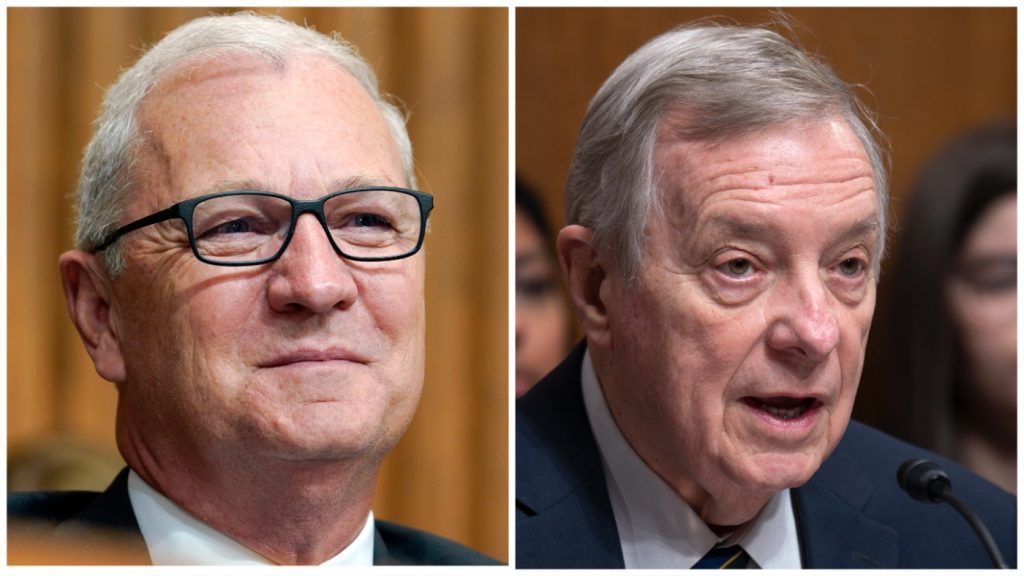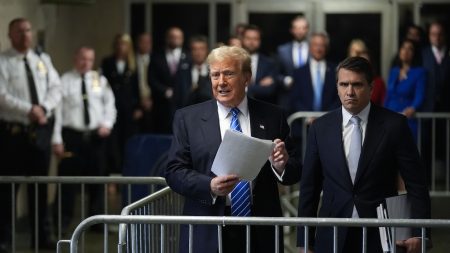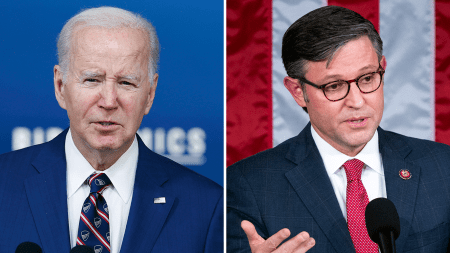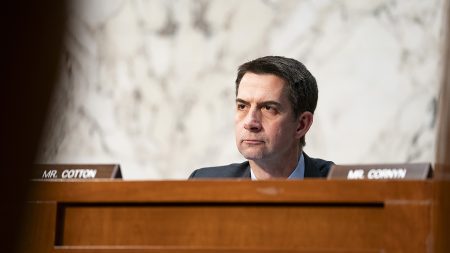A bipartisan Senate duo is pushing to require a warrant before accessing information on Americans swept by the government foreign spying activities, reigniting a battle that failed with a tie vote in the House.
Senate Judiciary Chair Dick Durbin (D-Ill.) and Sen. Kevin Cramer (R-N.D.) are proposing a similar amendment to add a warrant requirement to Section 702 of the Foreign Intelligence Surveillance Act (FISA).
Section 702 only allows the government to spy on foreigners abroad. However, people who communicate with these targets have their interactions collected during the process.
This is a controversial issue that resulted in a 212-212 vote in the House. Supporters see it as a way to safeguard Americans’ Fourth Amendment rights, while opponents – including the White House and the intelligence community – argue that it would weaken the spying tool and hinder law enforcement from acting promptly on information.
“I have sat through numerous classified briefings on Section 702 queries and listened carefully to the government’s concerns about having to obtain court approval in order to review the contents of Americans’ communications,” said Durbin in a statement.
“Our bipartisan amendment addresses these concerns by including exceptions to the warrant requirement for emergencies or cybersecurity attacks, or when an American gives consent to the search. This will ensure that there will not be any delays that threaten national security. But if the government wants to spy on the private communications of Americans, they should be required to get approval from a judge—just as our Founders intended.”
The intelligence community has indicated that the provision would be impractical.
Rep. Jim Himes (Conn.), the top Democrat on the House Intelligence Committee, pointed out that in many cases, agencies such as the FBI use the 702 database to gather information on potential threats – information that would probably not be enough to obtain a traditional warrant.
“Say a member of Congress has been discussed by Chinese intelligence officers. There’s no real worry that the member of Congress is engaged in a crime. But obviously, our intelligence community would like to know why Chinese intelligence officers are talking about a member of Congress,” Himes said when the House was set to consider the warrant requirement.
“If we pick up that an ISIS leader is talking to an individual in Los Angeles, who is by definition a U.S. person, we have no idea why that conversation is occurring. It could be a family member or a friend. So you cannot go to a judge and say, ‘We have no idea why this communication is occurring, but we want you to issue us a probable cause warrant.’ That is why the administration says the passage of a warrant requirement would shut this program down.”
However, some argue that the provision is necessary to prevent misuse of the 702 database, especially after the Foreign Intelligence Surveillance Court discovered that the FBI improperly used the tool around 278,000 times over several years.
Kevin Cramer stated that Section 702 of the Foreign Intelligence Surveillance Act has been misused, and any renewal must include stronger protections for Americans' Fourth Amendment rights. It is important to prevent the intrusive and often corrupt federal government from accessing private communications without a warrant in order to safeguard the civil liberties and Fourth Amendment rights of all Americans.
The number of FBI searches involving U.S. individuals has greatly decreased in recent years due to reforms and a technical adjustment to the search platform, which previously automatically included agents in searches of the 702 database.
However, intelligence leaders have claimed that the FISA 702 renewal bill contains significant changes that will alter the program.
The bill contains several changes, such as significantly restricting the number of personnel authorized to approve any searches of the 702 database involving U.S. individuals, and also mandates a post-search audit for all searches involving U.S. persons.
A high-ranking DOJ official previously informed The Hill that this bill should be seen as the most extensive set of changes in the history of the 702 program. It is a genuine reform bill that will transform the way operations are conducted, particularly by the FBI, in a manner that better protects civil liberties and privacy.









